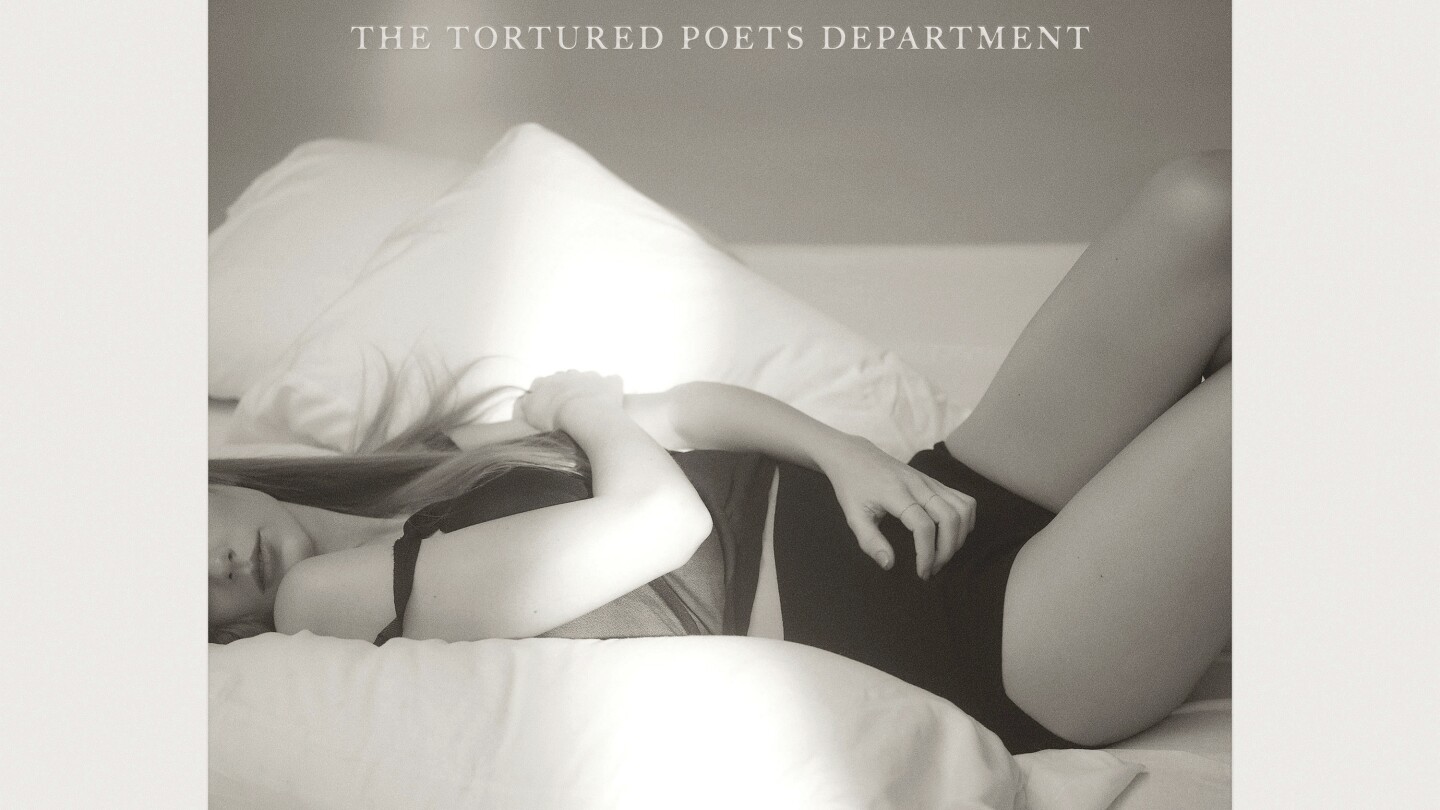Who knew what Taylor Swift’s newest period would convey? And even what it will sound like? Would it not construct off the moodiness of “Midnights” or the people of “evermore”? The nation or the ‘80s pop of her newest re-records? Or its two predecessors in black-and-white covers: the revenge-pop of “Popularity” and the literary Americana of “folklore”?
“The Tortured Poets Division,” right here Friday, is an amalgamation of the entire above, reflecting the artist who — on the peak of her powers — has spent the previous few years re-recording her life’s work and touring its materials, filtered via synth-pop anthems, breakup ballads, provocative and matured issues.
In moments, her eleventh album appears like a bloodletting: A cathartic purge after a serious heartbreak delivered via an ascendant vocal run, an elegiac verse, or cellular, synthesized productions that underscore the powers of Swift’s storytelling.
And there are surprises. The lead single and opener “Fortnight” is “1989” grown up — and options Put up Malone. It’d appear to be a humorous pairing, but it surely’s a very long time coming: Since no less than 2018, Swift’s followers have identified of her love for Malone’s “Higher Now.”
Taylor Swift’s “The Tortured Poets Division” is right here.
“However Daddy I Love Him” is the return of nation Taylor, in some methods — fairytale songwriting, a full band refrain, a plucky acoustic guitar riff, and a cheeky lyrical reversal: “However Daddy I really like him / I’m having his child / No, I’m not / However it’s best to see your faces.” (Infants seem on “Florida!!!” and the bonus observe “The Manuscript” as properly.)
The fictional “Recent Out The Slammer” begins with a extremely fairly psych guitar tone that disappears beneath wind-blown manufacturing; the brand new wave-adjacent “My Boy Solely Breaks His Favourite Toys” brings again “Barbie”: “I felt extra after we performed faux than with all of the Kens / ‘Trigger he took me out of my field.”
Even earlier than Florence Welch kicks off her verse in “Florida!!!,” the refrain’ explosive repetition of the music title hits arduous with nostalgic 2010s indie rock, maybe an alt-universe Swiftian tackle Sufjan Stevens’ “Illinois.”
As one other title states, “So Lengthy, London,” certainly.
It will be a disservice to learn Swift’s songs as purely diaristic, however that observe — the fifth on this album, which her followers sometimes peg as essentially the most devastating slot on every album — evokes hanging parallels to her relationship with a sure English actor she cut up with in 2023. Place it subsequent to a sleepy love ode like “The Alchemy,” with its references to “landing” and slicing somebody “from the staff” and properly … artwork imitates life.
This cowl picture launched by Republic Information present “The Tortured Poets Division” by Taylor Swift. (Republic Information by way of AP)
Revenge remains to be a pervasive theme. However the place the reprisal anthems on “Midnights” have been vindictive, on “The Tortured Poets Division,” there are new complexities: “Who’s Afraid of Little Previous Me?” combines the musical ambitiousness of “evermore” and “folklore” — and provides a powerful bass on the bridge — with sensibilities ripped from the weapons-drawn, obstinate “Popularity.” However right here, Swift principally trades victimhood for self-assurance, warts and all.
“Who’s afraid of little previous me?” she sings. “You ought to be,” she responds.
And but, “The Smallest Man Who Ever Lived” could also be her most biting music to this point: “You didn’t measure up in any measure of a person,” she sings atop propulsive piano. “I’ll neglect you, however I received’t ever forgive,” she describes her goal, possible the identical “tattooed golden retriever,” a jejune description, talked about within the title observe.
Missteps are few, present in different mawkish lyrics and songs like “Down Dangerous” and “Responsible as Sin?” that falter when positioned subsequent to the album’s extra meditative pop moments.
Elsewhere, Swift holds up a mirror to her melodrama and melancholy — she’s crying on the health club, don’t inform her about “unhappy,” is she allowed to cry? She died inside, she thinks you may want her useless; she thinks she would possibly simply die. She listens to the voices that inform her “Lights, digicam, bitch, smile / Even whenever you need to die,” as she sings on “I Can Do It with a Damaged Coronary heart,” a music about her personal performances — onstage and as a public determine.
“I’m depressing and no person even is aware of!” she laughs on the finish of the music earlier than sighing, “Attempt to come for my job.”
“Clara Bow” enters the pantheon of nice closing tracks on a Swift album. The title refers back to the Twenties silent movie star who burned quick and vivid — an early “It lady” and Hollywood intercourse image topic to vitriolic gossip, a sufferer of straightforward, on a regular basis misogyny amplified by superstar. As soon as Bow’s harsh Brooklyn accent was heard within the talkies, it was rumored, her profession was over.
A glimpse of Clara Bow’s life in images
In life, Bow later tried suicide and was despatched to an asylum — the identical establishment that seems on “Who’s Afraid of Little Previous Me?” “Clara Bow” works as an allegory and a cautionary story for Swift, the identical approach Stevie Nicks’ “Mabel Normand” — one other tragic silent movie star — functioned for the Fleetwood Mac star.
Nicks seems in “Clara Bow,” too: “You appear to be Stevie Nicks in ’75 / The hair and lips / Crowd goes wild.”
Later, Swift turns the digicam inward, and the music ends together with her singing, “You appear to be Taylor Swift on this mild / We’re loving it / You’ve acquired edge / She by no means did.” The album ends there, on what could possibly be learn as self-deprecation however stings extra like irritating self-awareness.
Swift sings a few tortured poet, however she is one, too. And isn’t it nice that she’s allowed herself the artistic license?
